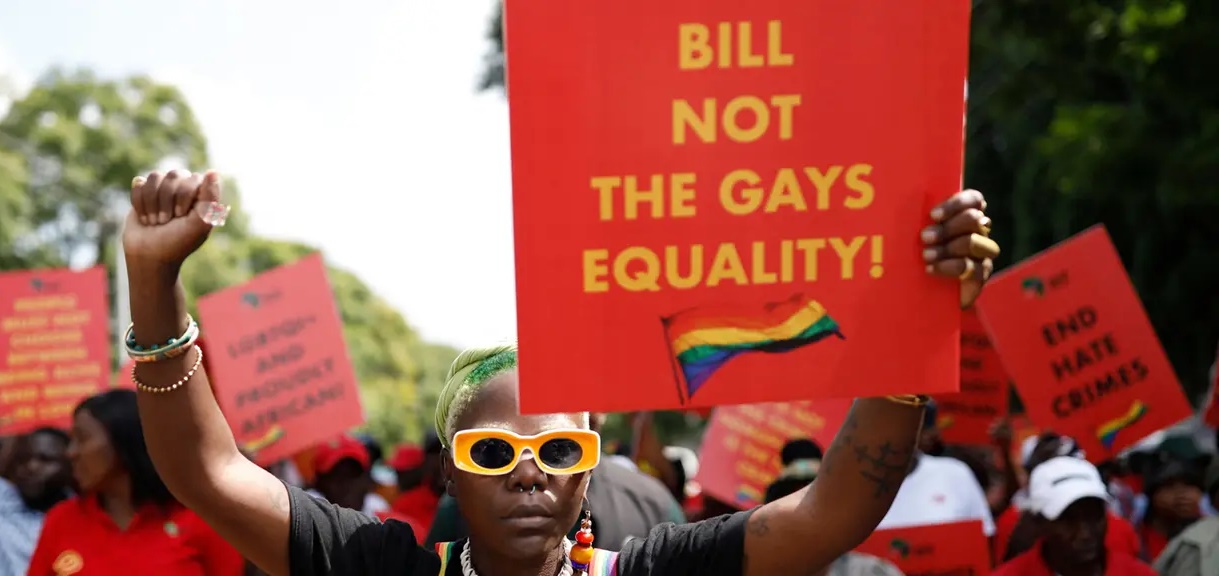Death penalty and imprisonment for homosexuals in Uganda
Death penalty and imprisonment for homosexuals: Lawsuit against Uganda's anti-LGBTQ law fails

The Constitutional Court of Uganda rejects a lawsuit against the internationally heavily criticized anti-LGBTQ law.
The court in Kampala explains that the “Anti-Homosexuality Law 2023” will neither be repealed nor suspended. According to the law, “participation in homosexual acts” carries a life sentence and “severe homosexuality” carries a death penalty. The law was passed in May. Human rights activists, legal scholars and members of parliament from the ruling party filed a lawsuit against it.
Lawsuit against anti-LGBTQ law failed
It provides for life imprisonment up to the death penalty: a law in Uganda that criminalizes “homosexual acts.” Human rights activists had sued against it – unsuccessfully. The Constitutional Court rejected their application.
The constitutional court in the landlocked East African state of Uganda has dismissed a lawsuit against the anti-LGBTQ law, which has been loudly criticized internationally. The court in Kampala said that the rules adopted last May will neither be repealed nor suspended.
According to the law, “engaging in homosexual acts” is a crime punishable by life imprisonment. “Severe homosexuality” can therefore even be punished with the death penalty, although this has not been carried out in Uganda for years.
Human rights activists, legal scholars and two members of parliament from the ruling National Resistance Movement (NRM) party sued the law. The plaintiffs see the law as a violation of human rights as well as the right to protection from discrimination and the right to privacy guaranteed by Uganda’s constitution.
In May 2023, Uganda passed one of the harshest laws against homosexual people – despite protests abroad. The presiding judge said that the law was essentially compatible with fundamental rights. The ruling can still be appealed to the Supreme Court.
International uproar a year ago
The UN Human Rights Commissioner Volker Türk had already sharply criticized the law and called on the country’s president not to sign it.
Türk described the law as one of the “worst of its kind in the world.” It could be a license for the “systematic violation” of almost all human rights.
The Netherlands responded at that time by freezing payments. The USA and Germany announced that they would examine collaborations.
In May 2023, the Foreign Office demanded that the law be withdrawn because it violated international obligations. The World Bank stopped issuing new loans to Uganda.
Several attempts had been made for the law. The effects were already felt before it was signed, a Ugandan activist said last year.
Hospitals, for example, turned away homosexuals because the facilities feared they would be harassed by the government. A well-known activist was murdered years ago.

